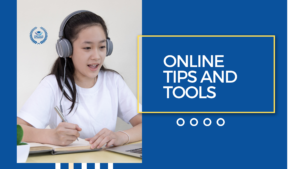Online Resources and Tools for Enhancing Learning at Home

Introduction
The advent of the internet has brought about a revolution in the way we access information and learn. This transformation is especially evident in the realm of education. With the proliferation of online resources and tools, individuals of all ages and backgrounds now have the opportunity to enhance their learning from the comfort of their homes. This article explores the vast array of online resources and tools available for enriching one’s educational journey at home.
- E-Learning Platforms
E-learning platforms have become increasingly popular for both formal and informal education. They offer a structured approach to learning and can range from massive open online courses (MOOCs) to more specialized platforms. Some well-known examples include Coursera, edX, Udemy, and Study Wave Academy. These platforms offer a variety of courses, often developed and taught by renowned educators and institutions.
- Open Educational Resources (OER)
Open Educational Resources are freely accessible, openly licensed materials that can be used for teaching, learning, and research. OER includes textbooks, videos, lecture notes, and other educational content that is available at no cost. Websites like OpenStax, MIT OpenCourseWare, and OER Commons are great sources of OER materials, enabling learners to access quality educational content without incurring expenses.
- Language Learning Apps
Language learning apps have made it easier than ever to acquire new languages. Duolingo, Babbel, Rosetta Stone, and Memrise are just a few examples. These apps offer interactive lessons and quizzes, making language learning an engaging and self-paced experience.
- Online Libraries
Digital libraries, like Project Gutenberg, Google Books, and the Internet Archive, offer a vast collection of free eBooks, audiobooks, and research materials. These resources allow individuals to access a world of knowledge without leaving their homes.
- Virtual Museums and Tours
Many museums and cultural institutions worldwide provide virtual tours and exhibits. This is a great way to explore art, history, and science from the comfort of your home. The Louvre, The British Museum, and The Smithsonian National Museum of Natural History are a few examples of institutions that offer these online experiences.
- Video Tutorials
Video-sharing platforms like YouTube have become hubs for educational content. Channels like Study Wave Academy, Vsauce, and TED-Ed offer a wide range of videos covering various subjects. Learners can watch these short, engaging videos to grasp complex concepts quickly.
- Educational Podcasts
Podcasts are an excellent way to learn on the go. Whether you’re commuting, exercising, or just relaxing at home, educational podcasts provide a wealth of information. Some popular podcasts include “Science Vs,” “Stuff You Should Know,” and “The History of Rome.”
- Educational Games and Apps
There are numerous educational games and apps designed for different age groups. For example, apps like ABCmouse and Epic! cater to young learners, while older students can benefit from educational games like Quizlet and Kahoot! These resources make learning fun and interactive.
- Online Study Groups and Forums
Online study groups and forums are invaluable resources for collaborative learning. Platforms like Reddit, Stack Exchange, and Quora allow learners to ask questions, discuss topics, and seek assistance from experts and peers.
- Online Coding and Programming Courses
In an increasingly digital world, coding and programming skills are in high demand. Websites like Codecademy, freeCodeCamp, and GitHub offer courses and resources to help individuals become proficient in coding and programming.
- Virtual Labs and Simulations
Science and engineering students can access virtual labs and simulations for conducting experiments and understanding complex concepts. Websites like PhET Interactive Simulations and ChemCollective provide interactive learning experiences.
- Educational Social Media
Social media platforms like Twitter and Instagram have educational accounts and hashtags dedicated to sharing knowledge and information. Follow accounts like @NatGeoEducation and @NASA for science and nature enthusiasts, or @History for history buffs.
Conclusion
The internet has revolutionized the way we access education and knowledge. The resources and tools available for enhancing learning at home are abundant and diverse, catering to a wide range of interests and age groups. Whether you are pursuing a formal education, picking up a new skill, or simply seeking to expand your knowledge, there are online platforms and tools that can support your educational journey. Embrace the digital era and make the most of these resources to enhance your learning from the comfort of your home.



